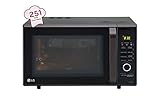Electric Cooker Vs Pressure Cooker Which One Is Better For Your Household
Not sure if your kitchen needs the convenience of an electric cooker or the durability of a pressure cooker? Here are a few important things you need to know about electric cookers vs pressure cookers.

Electric Cooker Vs Stovetop Pressure Cooker
Pressure cookers hold an important place in every Indian household. We have all seen parents use pressure cookers for our favourite rajma, chole, rice, and whatnot. Over the years, many have switched to electric cookers, particularly due to their enhanced safety, ease of use, and versatile features. But is it the right decision for you? If you are also tempted by internet recipes to buy an electric cooker for your household, this blog is for you. Today, we will do a little electric cooker vs pressure cooker showdown to help you find the right kitchen appliance for your needs.
1. Ease of Use
The first important factor to consider is the ease of use. Traditional pressure cookers require constant monitoring and human intervention to adjust the flame. Moreover, it can be tricky for beginners. However, electric cookers offer a more hands-off experience. Just add the ingredients, set the timer, and let the appliance do its job. Even a kitchen newbie can cook meals in electric cookers independently.
2. Cooking Time
In most cases, traditional pressure cookers are much faster than electric ones. They quickly boil and prepare your everyday legumes. On the other hand, electric cookers can take longer to heat up and cook your food. If speed is a priority in your routine, pressure cookers will be a better choice. However, if you prefer convenience over speed, electric cookers can be a hassle-free option.
3. Versatile Cooking Options
Did you know that electric cookers are multipurpose? With the right techniques and tools, you can use them to prepare steam, saute, boil, and even slow-cook in some models. This feature makes them more versatile than pressure cookers.
On the contrary, pressure cookers focus primarily on quick cooking through steam pressure. They are ideal for boiling rice, legumes, and vegetables, and don't add much flexibility.
Also Read: 5 Best Electric Cookers Under ₹2,000 That Will Save You From High Gas Bills
4. Safety and Maintenance
As mentioned earlier, pressure cookers can be tricky for beginners. Older models often come with the risk of steam burns or lid mishaps. That's why they need more care and precaution while in use. Luckily, electric cookers are safer. Many models have safety features, like pressure control and auto shut-off. This gives you greater control over the cooking process.
But when it comes to regular cleaning and maintenance, pressure cookers have the upper edge. They are easy to scrub, rinse, and clean. You have to be extra cleaning while cleaning electric cookers and their parts without causing water damage.
5. Cost
Pressure cookers are usually more budget-friendly, making them ideal for people on a tight kitchen budget. Similarly, electric cookers come at a higher price point but offer more features. These functions are aimed at justifying their higher price point in the long run.
Products Related To This Article
1. Pigeon JOY SINGLE POT AUTOMATIC MULTI COOKER WARMER Electric Rice Cooker with Steaming Feature (1 L, White)
2. MILTON Go Electro Cooker, 1.2L, 600 Watt, Egg Tray, SS Stand, Steaming Bowl Egg Cooker (1.2 L, Silver)
3. SK RAYAN 3-In-1 600W Multi Cooker with Stainless Steel Steamer, 1.8 L Tempered Glass Lid Travel Cooker
4. Prestige Atlas Delight Electric Rice Cooker (1.8 L, Blue)
5. Greenchef Carlo Ace Single Pot Electric Rice Cooker (1.8 L, Red)
6. CREATION BAZAAR Cooking Pot Noodle Maker Egg Boiler hot Pot Vegetable Rice Cooker, Travel Cooker, Egg Cooker (1.5 L, Multicolor)
7. Prestige PRWO 1.8-2 Electric Rice Cooker with Steaming Feature (1.8 L, White)
8. Pigeon Joy 2 Pot Electric Rice Cooker (1 L, White)
9. Prestige PRWO 2.8-2 Electric Rice Cooker with Steaming Feature (2.8 L, White)
10. AGARO Royal Electric Rice Cooker, Ceramic Coated Inner Bowl, Electric Rice Cooker (5 L, Silver)
FAQs
1. Are electric pressure cookers better?
Although electric cookers are easy to use, they take longer to cook. They are equipped with various functions and features to personalise your cooking experience and are great for people who live alone.
2. What are the advantages of electric cookers?
Some advantages of electric cookers are that they are user-friendly, equipped with different features, offer different capacities, and are also easy to clean.
3. What is the difference between a pressure cooker and an electric cooker?
A key difference between pressure cookers and electric cookers is that the former is more affordable, durable, and versatile. On the other hand, electric cookers are easy to use and more convenient.
4. Is cooking in an electric cooker safe?
Yes, electric cookers can be safe to use. They distribute heat evenly, are easy to use, and often cook quickly.
5. What is the average life of an electric cooker?
The average life of an electric cooker can be around 13 years. It ultimately depends on its build quality, frequency of use, care, and other factors.
By now, you must have understood that both electric cookers and pressure cookers have their own set of pros and cons. If you value speed, affordability, and a tried-and-tested tool, pressure cookers are the best choice. But if you are looking for convenience, extra safety, and multi-functionality, electric cookers are more suitable. The final decision is entirely yours. So, take time to assess your daily cooking habits, needs, and kitchen space before choosing one.



























